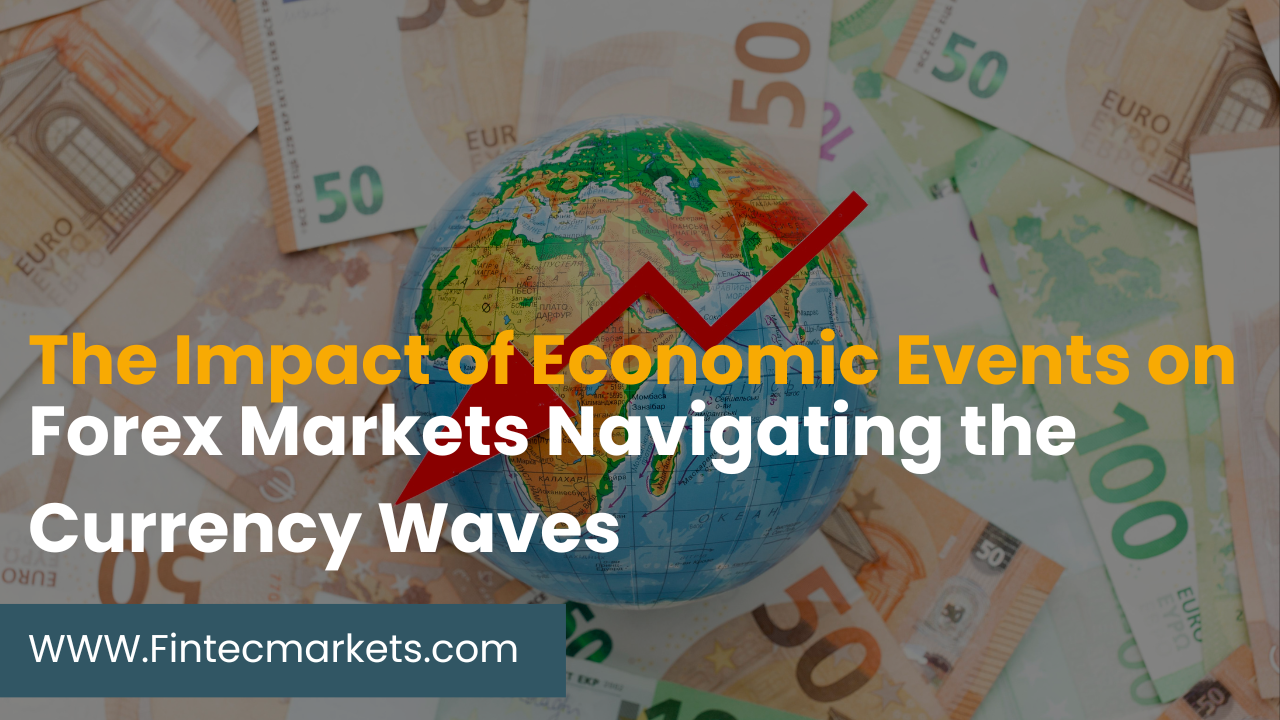
Introduction: The foreign exchange (forex) market is a dynamic and intricate financial ecosystem influenced by a myriad of factors. Among these, economic events play a pivotal role in shaping the movements of currencies. Understanding how economic events impact forex trading is crucial for investors seeking to navigate the currency waves and make informed decisions. In this blog, we will explore the significant impact of economic events on the forex market and how traders can position themselves strategically.
Economic Indicators as Market Drivers: Economic indicators are key metrics that reflect the economic health of a country. Events such as GDP releases, employment reports, and inflation data serve as vital indicators for forex traders. Positive or negative surprises in these indicators can cause significant movements in currency prices.
Interest Rate Decisions and Currency Values: Central banks play a pivotal role in forex markets by determining interest rates. Changes in interest rates can influence the attractiveness of a currency to investors. Higher interest rates often lead to a stronger currency, while lower rates may result in depreciation. Traders closely monitor central bank statements and decisions to anticipate currency movements.
Political Developments and Geopolitical Events: Political stability and geopolitical events can have a profound impact on currency values. Elections, trade tensions, and international conflicts can create uncertainty and volatility in the forex market. Traders need to stay vigilant and adapt their strategies in response to unfolding political events.
Inflation and Forex Trading: Inflation is a key factor influencing currency values. Central banks often aim for a target inflation rate, and deviations from this target can lead to currency movements. Traders assess inflation data to anticipate central bank actions and potential shifts in currency values.
Economic Calendar and Planning: Forex traders rely on economic calendars to stay informed about upcoming economic events and announcements. Planning ahead and being aware of scheduled releases help traders manage risk and capitalize on potential opportunities arising from market reactions to economic news.
Volatility and Risk Management: Economic events can trigger heightened market volatility. While volatility presents opportunities, it also poses risks. Traders need effective risk management strategies, including setting stop-loss orders and managing leverage, to navigate the market’s fluctuations during economic events.
Currency Correlations and Diversification: Traders should be mindful of currency correlations, understanding how certain economic events may impact multiple currencies simultaneously. Diversification across different currency pairs can help mitigate risk and provide a more balanced portfolio.
Conclusion: In the ever-evolving landscape of forex trading, staying abreast of economic events is essential for success. The impact of economic indicators, interest rate decisions, and geopolitical events on currency values requires traders to be proactive, adaptive, and well-informed. By incorporating a comprehensive understanding of economic events into their trading strategies, investors can better position themselves to navigate the waves of the forex market and make informed decisions.
